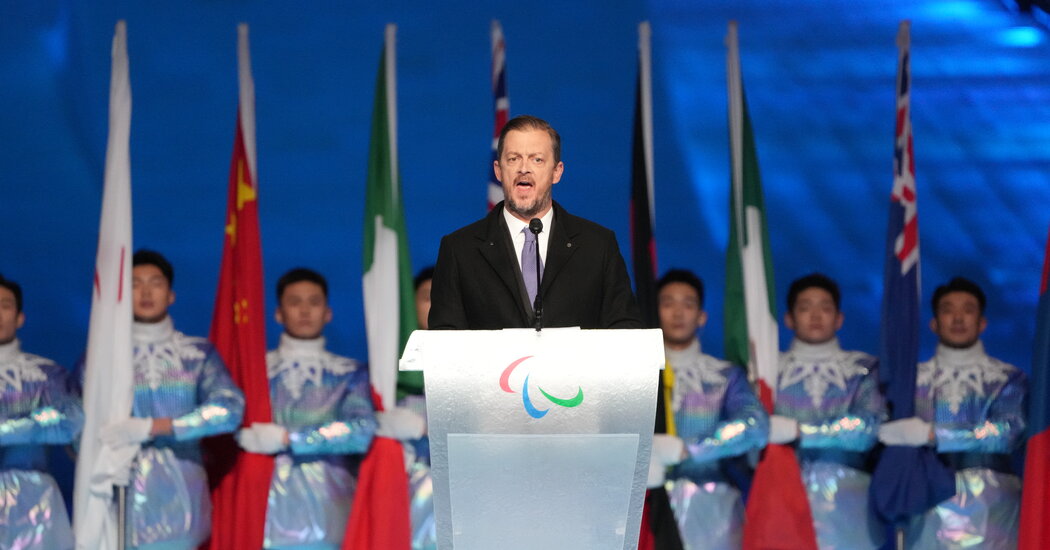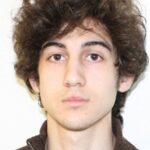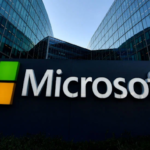
BEIJING — The president of the International Paralympic Committee broke protocol on Friday when he denounced Russia’s invasion of Ukraine in his speech at the opening ceremony of the Beijing Games.
With President Xi Jinping of China in attendance, the committee president, Andrew Parsons, said he was “horrified” by the invasion. “Tonight, I want to begin with a message of peace,” Parsons said.
The International Olympic Committee in recent years has reaffirmed its ban on protests and political messages at the Olympics, rules that are generally aimed at athletes. But in this case it was the head of the organization who defied the rule, as the invasion of Ukraine continues to dominate the I.P.C.’s agenda in the days leading up to its quadrennial winter showcase.
The delegation from Ukraine, about 20 athletes, entered the stadium to modest applause, some with their fists raised as the walked around the floor of the stadium during the colorful and elaborate ceremony.
Shortly after Parsons spoke, social media users in China noted that a portion of his speech was not translated on Chinese television for about one minute, beginning when he said, “At the I.P.C., we aspire to a better and more inclusive world, free from discrimination, free from hate, free from ignorance and free from conflict.”
During that time, the televised sign language interpretation of the speech also temporarily stopped.
Parsons praised the Chinese for their hospitality, calling the venues “magnificent,” and noting that “hundreds of thousands of facilities were made barrier free,” for people with disabilities. But he also incurred the wrath of social media users, who noted that in his opening line, Parsons, who is from Brazil, referred to the “Republic of China,” which is the official name of Taiwan. He may have meant to say “The People’s Republic of China,” and did so accurately later in the speech.
For days, as the invasion forced the I.P.C. to hold meetings and deliberate how it would treat the Russian and Belarusian athletes, Parsons continually stressed that it was incumbent upon the organization to avoid politics and to practice neutrality according to the I.P.C.’s rules. But he eventually conceded that taking action was unavoidable, noting that the war had interfered with the Games.
Referring in his speech Friday to the Olympic Truce adopted by the United Nations General Assembly, Parsons said, “It must be respected and observed, not violated.”
On Thursday, Parsons announced that the I.P.C. had barred Russian and Belarusian athletes from competing, an unusual step taken in response to Russia’s attack on Ukraine, which was staged with the support of Belarus.
The decree was a reversal of the I.P.C.’s decision the day before to allow the athletes from those countries to participate.
But in the hours after that first announcement, Parsons said, the athletes and delegations from many other countries threatened to boycott and he added that tensions were rising in the Olympic Village, where the athletes stay. He said the viability of the Games would be in doubt if the Russians and Belarussians were allowed to compete.




